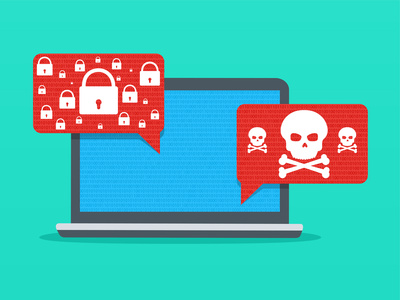While the internet opens up a world of opportunity, it also goes hand in hand with some big risks. And unfortunately, they’re all too easy to fall for. From “phishing emails” to downloaded viruses, here’s our guide to sidestepping your way around some of the most popular online scams in the books.
Don’t get “phished”
Targeting both businesses and individuals, “phishing” sees cyber criminals use email or social media to trick their targets into disclosing classified information. They’ll usually persuade you to click on links in their messages which will redirect you to a website that looks all too legitimate. The reality is that it’s controlled by the phishers and will send your details straight into their clutches.
Emails will usually be composed with a sense of urgency designed to switch you into panic mode. Generally, a frightening story that your bank account is under threat and you need to confirm your details ASAP. Or that you’ve won a major cash prize and you need to claim within the next 24 hours or you’ll miss out.
IMPORTANT! The easiest way to avoid phishing scams is to understand what they are and learn how to read the warning signs.
Banks never email
One of the absolute easiest ways to avoid financial scams is to remember that banks will NEVER email their customers asking them to confirm personal details. No matter how convincing the wording or how polished the logos, banks always stick to snail mail or phone calls. If in doubt simply give your bank a call and ask to chat to someone about a recent email you received. They’ll be able to tell you whether it’s genuine or bogus in a matter of minutes.
Don’t open unknown emails
Everyone loves to hear from their family and friends, so it makes sense that the “greeting card” scam is one of the most common ways to get yourself hoodwinked. Basically, it sees scammers send out an email that appears to be from a friend. It will usually contain a link prompting you to open your virtual card. When you click it will give scammers permission to install malicious software to your operating system. From annoying pop-ups to financial malware that steals your bank details, seemingly innocent emails like these can cause all kinds of problems. Luckily, they’re easy to avoid simply by only opening mail from known senders.
Use your common sense
 Sad but true, another widespread scam is the “hitman” extortion attempt email. And yes, it can be terrifying. It involves cyber criminals sending emails threatening to kill, injure or kidnap you unless you pay up. To simulate the appearance of genuine danger the message is filled with personal details sourced from your online accounts, personal blogs, social networks and more. It can be alarming, but it’s important to keep a clear head and use your common sense. The chances that someone is actually planning an attack are more or less non-existent. The best thing to do is to simply delete the email and block the sender, however if you’re genuinely concerned and want absolute peace of mind you can always go to the police.
Sad but true, another widespread scam is the “hitman” extortion attempt email. And yes, it can be terrifying. It involves cyber criminals sending emails threatening to kill, injure or kidnap you unless you pay up. To simulate the appearance of genuine danger the message is filled with personal details sourced from your online accounts, personal blogs, social networks and more. It can be alarming, but it’s important to keep a clear head and use your common sense. The chances that someone is actually planning an attack are more or less non-existent. The best thing to do is to simply delete the email and block the sender, however if you’re genuinely concerned and want absolute peace of mind you can always go to the police.
Romance scams
Online dating has reimagined the world of romance, and we absolutely love how easy dating platforms make it to connect with likeminded individuals. Of course, it pays to be cautious as online romance scams are now more popular than ever. Since this particular scam addresses your emotional self and not your rational side it’s much easier to drop your guard. The best way to avoid romance scams is to meet up with your potential match as soon as possible, or pencil in regular Skype “dates” if you’re in different locations. While some cases can be completely innocent, warning bells should start to sound if your lover ever asks for money. This one is big, so if you feel you’re at risk take the time to read through these top tips on how to avoid online romance scams.
Install antivirus and malware programmes
If you really want to safeguard yourself against online scams you should think about installing antivirus or malware programmes. These won’t affect how you use your devices and will actively work to protect you from cyber criminals. If you’re not sure what this means ask for help from a friend or book an appointment with your local computer tech shop.
You’re not alone
The most important thing to remember is that you’re not alone. In the aftermath of a scam it’s all too easy to feel humiliated, embarrassed and hands down foolish. The absolute worst thing you can do is not speak up, especially if you feel like you’re in too deep and can’t get out. Whether you ask for help from a tech savvy loved one or reach out to the police, seeking support could mean the difference between falling for a scam or emerging unscathed.









Join the Discussion
Type out your comment here:
You must be logged in to post a comment.